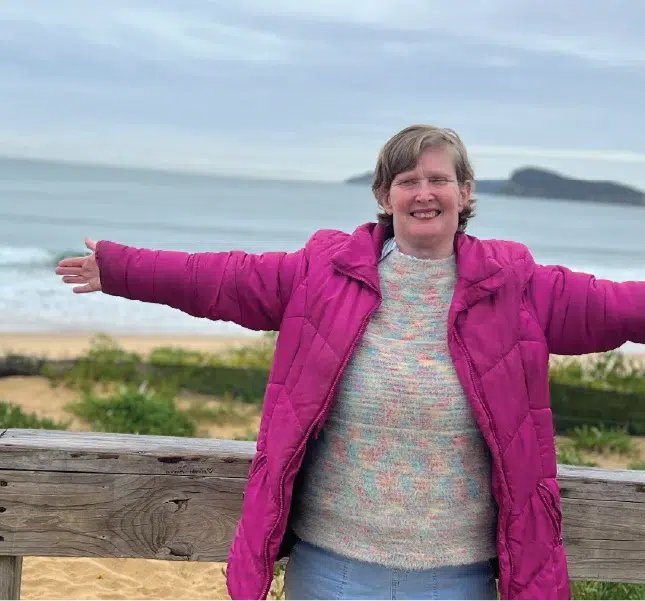Embedding Aboriginal culture in our OSHC’s
November 28, 2022
It’s always a good thing when a child asks questions. Questions suggest that a child’s interest has been sparked, and they are eager to learn more. That’s exactly what is happening at Tumbi Umbi OSHC since incorporating Aboriginal culture into the programming.
“The children have been very engaged, and the activities have led to many curious questions, especially from the non-Indigenous children,” says Educational Leader Debbie.
“Until now, there has been limited cultural influence, but CatholicCare is keen to change that.”
Debbie, inspired by her own Indigenous background, has been working hard over the last year to develop greater knowledge of Aboriginal culture and sustainable practices among children and staff. “Of the 120 children in the OSHC program at Tumbi Umbi, approximately 10 are of Aboriginal heritage,” Debbie says.
“This year we’ve been working closely with St John Fisher’s school to incorporate a bush tucker garden onsite,” Debbie says. “We also had Aunty Tracy, an Aboriginal artist visit us over a three week period to work on an artwork with the kids – and another visitor, Johnathon has taught us dance and Aboriginal games. Our team is motivated by a desire to engage in more sustainable practices and connect the children with culture, nature and wildlife.”
Tumbi Umbi OSHC are not alone in embedding Aboriginal culture into their programming. Across CatholicCare’s Children’s Services, Aboriginal culture is becoming more and more embedded in the curriculum. Over recent years, the programs have been striving to make Aboriginal cultural elements less tokenistic and more entrenched in everyday activities.
Monique, General Manager of Children’s Services explains that incorporating Aboriginal culture into programming is never about ticking a box. “We ask, ‘What does our community look like, and how then can we best engage with our children, bringing in experiences from their family, friends and community?’ In areas where we have more Aboriginal children, it just makes sense to embed Aboriginal culture more deeply into the curriculum.”
Monique says that in Terrigal and Woy Woy there are robust Aboriginal communities surrounding the Early Learning Centres, and the staff have worked closely with local Elders to enrich the programming.
“Members of the local Aboriginal community have been coming into the centre to talk about their community, to sing songs with the children, to teach them some words and to play games.”
Next September, Woy Woy OSHC will be hosting an Indigenous themed carnival day and they have invited a local Elder to do a smoking ceremony. Other CatholicCare OSHC services will attend and be part of the day, which will include Aboriginal games, songs and dances.
For Monique, working closely with the local Aboriginal community is crucial. Educating and resourcing staff is key to maximising the children’s learning and exposure to Aboriginal culture. “One thing I’ve learnt over the years is that you have to start by building a relationship with the community. The community need to trust that your centre is a safe place for all children and families, including theirs.”
“We encourage staff to access relevant resources, for example the Early Childhood Directorate Aboriginal Perspectives Programs and SNAICC’s Aboriginal Early Childhood Conference,” Monique says. “If staff have knowledge that they’ve developed either from their own learning, through their relationships with families or from Elders who have visited the centre, they can feel more confident talking to children about Aboriginal culture.
We encourage staff to engage with children and families to intentionally support their understanding of culture and their sense of belonging.” When educators are curious, engaged, and informed, the flow on effect to the children is inevitable and powerful.
More news stories like this one
Creating space for safety this International Women’s Day
International Women’s Day (8 March) is an opportunity to reflect on the realities women face, and the responsibility we share to remove the barriers that prevent safety, recovery and long-term wellbeing.
Read MoreMemory Innovations keeps Pat moving
Explore the Memory Innovations Centre where Pat finds laughter and purpose through engaging classes like Brain Games.
Read MoreSarah blossoms at Clarke Road
Find out how the Click & Connect group at the Disability Hub Waitara boosted Sarah's confidence and tech skills over time.
Read More


